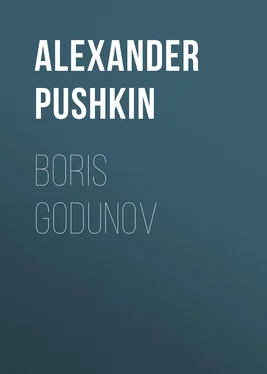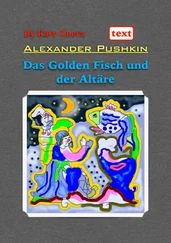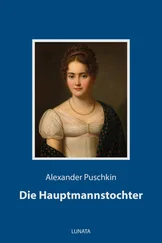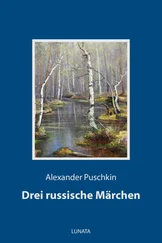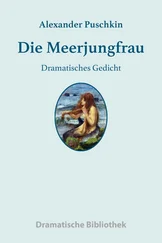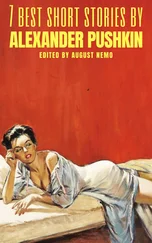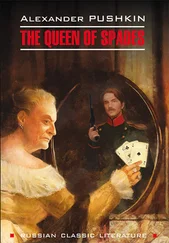Alexander Pushkin - Boris Godunov
Здесь есть возможность читать онлайн «Alexander Pushkin - Boris Godunov» — ознакомительный отрывок электронной книги совершенно бесплатно, а после прочтения отрывка купить полную версию. В некоторых случаях можно слушать аудио, скачать через торрент в формате fb2 и присутствует краткое содержание. Жанр: Драматургия, Старинная литература, literature_19, Русская классическая проза, Поэзия, foreign_poetry, на английском языке. Описание произведения, (предисловие) а так же отзывы посетителей доступны на портале библиотеки ЛибКат.
- Название:Boris Godunov
- Автор:
- Жанр:
- Год:неизвестен
- ISBN:нет данных
- Рейтинг книги:5 / 5. Голосов: 1
-
Избранное:Добавить в избранное
- Отзывы:
-
Ваша оценка:
- 100
- 1
- 2
- 3
- 4
- 5
Boris Godunov: краткое содержание, описание и аннотация
Предлагаем к чтению аннотацию, описание, краткое содержание или предисловие (зависит от того, что написал сам автор книги «Boris Godunov»). Если вы не нашли необходимую информацию о книге — напишите в комментариях, мы постараемся отыскать её.
Boris Godunov — читать онлайн ознакомительный отрывок
Ниже представлен текст книги, разбитый по страницам. Система сохранения места последней прочитанной страницы, позволяет с удобством читать онлайн бесплатно книгу «Boris Godunov», без необходимости каждый раз заново искать на чём Вы остановились. Поставьте закладку, и сможете в любой момент перейти на страницу, на которой закончили чтение.
Интервал:
Закладка:
GREGORY. How joyfully didst thou
Live out thy youth! The fortress of Kazan
Thou fought'st beneath, with Shuisky didst repulse
The army of Litva. Thou hast seen the court,
And splendour of Ivan. Ah! Happy thou!
Whilst I, from boyhood up, a wretched monk,
Wander from cell to cell! Why unto me
Was it not given to play the game of war,
To revel at the table of a tsar?
Then, like to thee, would I in my old age
Have gladly from the noisy world withdrawn,
To vow myself a dedicated monk,
And in the quiet cloister end my days.
PIMEN. Complain not, brother, that the sinful world
Thou early didst forsake, that few temptations
The All-Highest sent to thee. Believe my words;
The glory of the world, its luxury,
Woman's seductive love, seen from afar,
Enslave our souls. Long have I lived, have taken
Delight in many things, but never knew
True bliss until that season when the Lord
Guided me to the cloister. Think, my son,
On the great tsars; who loftier than they?
God only. Who dares thwart them? None. What then?
Often the golden crown became to them
A burden; for a cowl they bartered it.
The tsar Ivan sought in monastic toil
Tranquility; his palace, filled erewhile
With haughty minions, grew to all appearance
A monastery; the very rakehells seemed
Obedient monks, the terrible tsar appeared
A pious abbot. Here, in this very cell
(At that time Cyril, the much suffering,
A righteous man, dwelt in it; even me
God then made comprehend the nothingness
Of worldly vanities), here I beheld,
Weary of angry thoughts and executions,
The tsar; among us, meditative, quiet
Here sat the Terrible; we motionless
Stood in his presence, while he talked with us
In tranquil tones. Thus spake he to the abbot
And all the brothers: "My fathers, soon will come
The longed-for day; here shall I stand before you,
Hungering for salvation; Nicodemus,
Thou Sergius, Cyril thou, will all accept
My spiritual vow; to you I soon shall come
Accurst in sin, here the clean habit take,
Prostrate, most holy father, at thy feet."
So spake the sovereign lord, and from his lips
Sweetly the accents flowed. He wept; and we
With tears prayed God to send His love and peace
Upon his suffering and stormy soul.—
What of his son Feodor? On the throne
He sighed to lead the life of calm devotion.
The royal chambers to a cell of prayer
He turned, wherein the heavy cares of state
Vexed not his holy soul. God grew to love
The tsar's humility; in his good days
Russia was blest with glory undisturbed,
And in the hour of his decease was wrought
A miracle unheard of; at his bedside,
Seen by the tsar alone, appeared a being
Exceeding bright, with whom Feodor 'gan
To commune, calling him great Patriarch;—
And all around him were possessed with fear,
Musing upon the vision sent from Heaven,
Since at that time the Patriarch was not present
In church before the tsar. And when he died
The palace was with holy fragrance filled.
And like the sun his countenance outshone.
Never again shall we see such a tsar.—
O, horrible, appalling woe! We have sinned,
We have angered God; we have chosen for our ruler
A tsar's assassin.
GREGORY. Honoured father, long
Have I desired to ask thee of the death
Of young Dimitry, the tsarevich; thou,
'Tis said, wast then at Uglich.
PIMEN. Ay, my son,
I well remember. God it was who led me
To witness that ill deed, that bloody sin.
I at that time was sent to distant Uglich
Upon some mission. I arrived at night.
Next morning, at the hour of holy mass,
I heard upon a sudden a bell toll;
'Twas the alarm bell. Then a cry, an uproar;
Men rushing to the court of the tsaritsa.
Thither I haste, and there had flocked already
All Uglich. There I see the young tsarevich
Lie slaughtered: the queen mother in a swoon
Bowed over him, his nurse in her despair
Wailing; and then the maddened people drag
The godless, treacherous nurse away. Appears
Suddenly in their midst, wild, pale with rage,
Judas Bityagovsky. "There, there's the villain!"
Shout on all sides the crowd, and in a trice
He was no more. Straightway the people rushed
On the three fleeing murderers; they seized
The hiding miscreants and led them up
To the child's corpse yet warm; when lo! A marvel—
The dead child all at once began to tremble!
"Confess!" the people thundered; and in terror
Beneath the axe the villains did confess—
And named Boris.
GREGORY. How many summers lived
The murdered boy?
PIMEN. Seven summers; he would now
(Since then have passed ten years—nay, more—twelve years)
He would have been of equal age to thee,
And would have reigned; but God deemed otherwise.
This is the lamentable tale wherewith
My chronicle doth end; since then I little
Have dipped in worldly business. Brother Gregory,
Thou hast illumed thy mind by earnest study;
To thee I hand my task. In hours exempt
From the soul's exercise, do thou record,
Not subtly reasoning, all things whereto
Thou shalt in life be witness; war and peace,
The sway of kings, the holy miracles
Of saints, all prophecies and heavenly signs;—
For me 'tis time to rest and quench my lamp.—
But hark! The matin bell. Bless, Lord, Thy servants!
Give me my crutch.
(Exit.)
GREGORY. Boris, Boris, before thee
All tremble; none dares even to remind thee
Of what befell the hapless child; meanwhile
Here in dark cell a hermit doth indite
Thy stern denunciation. Thou wilt not
Escape the judgment even of this world,
As thou wilt not escape the doom of God.
FENCE OF THE MONASTERY 2 2 This scene was omitted by Pushkin from the published version of the play.
GREGORY and a Wicked Monk
GREGORY. O, what a weariness is our poor life,
What misery! Day comes, day goes, and ever
Is seen, is heard one thing alone; one sees
Only black cassocks, only hears the bell.
Yawning by day you wander, wander, nothing
To do; you doze; the whole night long till daylight
The poor monk lies awake; and when in sleep
You lose yourself, black dreams disturb the soul;
Glad that they sound the bell, that with a crutch
They rouse you. No, I will not suffer it!
I cannot! Through this fence I'll flee! The world
Is great; my path is on the highways never
Thou'lt hear of me again.
MONK. Truly your life
Is but a sorry one, ye dissolute,
Wicked young monks!
GREGORY. Would that the Khan again
Would come upon us, or Lithuania rise
Once more in insurrection. Good! I would then
Cross swords with them! Or what if the tsarevich
Should suddenly arise from out the grave,
Should cry, "Where are ye, children, faithful servants?
Help me against Boris, against my murderer!
Seize my foe, lead him to me!"
MONK. Enough, my friend,
Of empty babble. We cannot raise the dead.
No, clearly it was fated otherwise
For the tsarevich—But hearken; if you wish
To do a thing, then do it.
GREGORY. What to do?
MONK. If I were young as thou, if these grey hairs
Had not already streaked my beard—Dost take me?
GREGORY. Not I.
MONK. Hearken; our folk are dull of brain,
Easy of faith, and glad to be amazed
By miracles and novelties. The boyars
Remember Godunov as erst he was,
Peer to themselves; and even now the race
Of the old Varyags is loved by all. Thy years
Match those of the tsarevich. If thou hast
Cunning and hardihood—Dost take me now?
Интервал:
Закладка:
Похожие книги на «Boris Godunov»
Представляем Вашему вниманию похожие книги на «Boris Godunov» списком для выбора. Мы отобрали схожую по названию и смыслу литературу в надежде предоставить читателям больше вариантов отыскать новые, интересные, ещё непрочитанные произведения.
Обсуждение, отзывы о книге «Boris Godunov» и просто собственные мнения читателей. Оставьте ваши комментарии, напишите, что Вы думаете о произведении, его смысле или главных героях. Укажите что конкретно понравилось, а что нет, и почему Вы так считаете.
